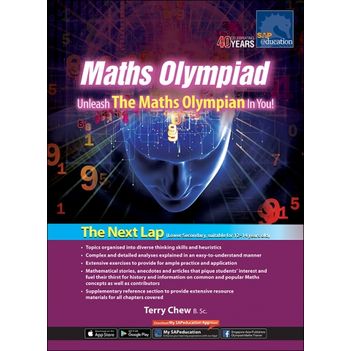Wrote British philosopher and mathematician Bertrand Russell in his 1917 essay Mysticism and Logic: “Mathematics, when rightly viewed, possesses not only truth, but supreme beauty – a beauty cold and austere, like that of sculpture.”
Mathematics problems are not alike in the way they come to the students’ attention. As interesting as the diversifi ed nature of Maths Olympiad questions is the constant curious nature of our minds. As a writer and coach of MO for many years, my curiosity intensifies each time I ask my students to present their solutions to problems as part of the training, that is, to articulate their thinking process and reasoning skills. In moments like these, I become the student – my mind fi lled with childlike anticipation and my students, in turn, become the master. The verbalisations of their thoughts are so full of imagination, fantasy and creativity that this exchange becomes an enjoyment. Perhaps there is as much for me to learn from them as they from me.
Two things are obvious how some students have arrived at this state of mastery. Firstly, their tremendous acquisition of knowledge and the ability to make connection through this knowledge is highly remarkable. Secondly, and quite evidently, they have interest in what they persevere and are apparently gifted. Which attribute precedes the other, though,I cannot be too sure.
Psychologists over the years have agreed on one thing, the like of which Canadian journalist Malcolm Gladwell mentioned in his book Outliers: The Story of Success: To be exceptionally good, or to reach the state of professional, one must put in something like 10,000 hours of effort in the practice. Though not immediately and readily comparable, the moral is nevertheless the same: practice, practice, practice.
This book is written specially for my students and others alike who also enjoy mathematics.
Maths Olympiad The Next Lap (Lower Secondary)
ISBN 9789813217546
223 pages













